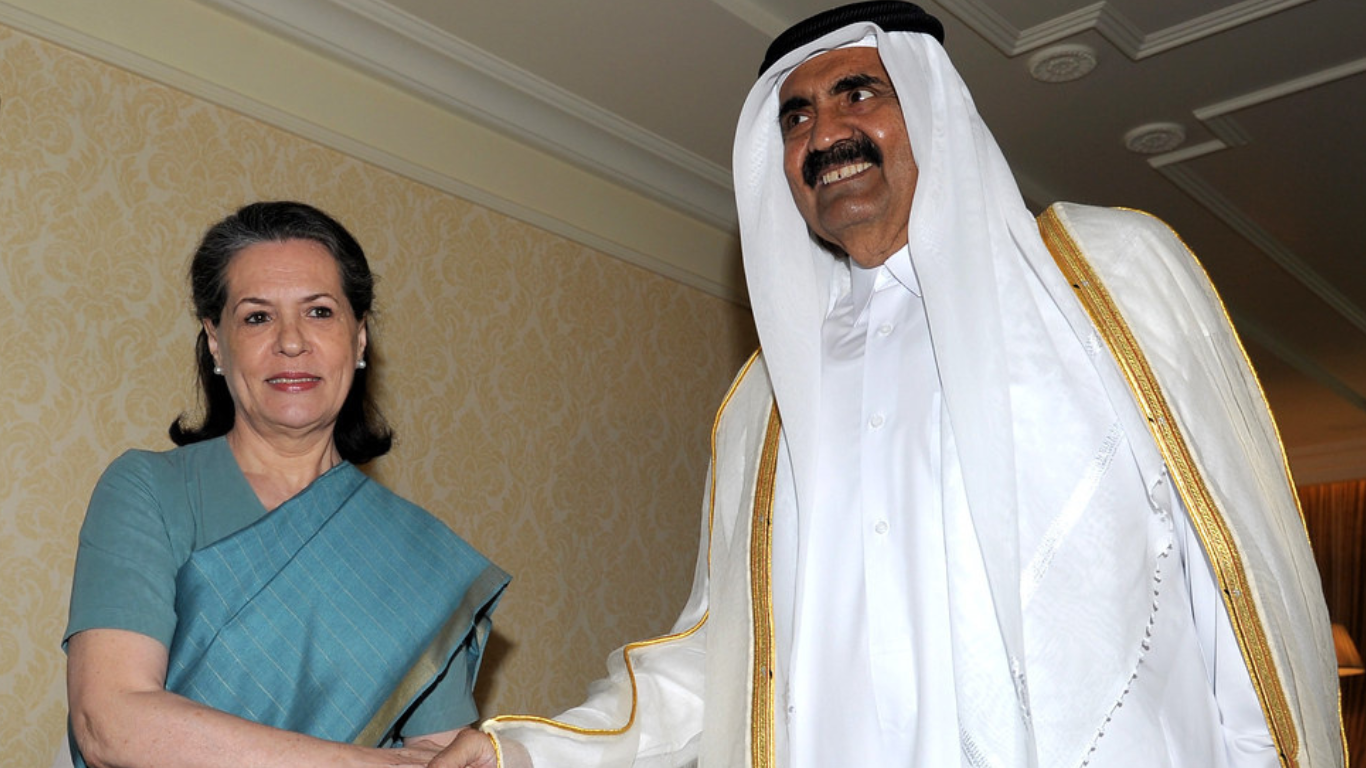Sonia Gandhi stands as one of the most influential yet enigmatic figures in Indian politics. Born in Italy, she rose to prominence as the wife of former Prime Minister Rajiv Gandhi and later became a powerhouse in her own right, leading the Indian National Congress (INC) through turbulent times. Her journey—from a quiet, private individual to a key political leader—captivates those eager to understand her life, contributions, and the facts that define her legacy. This comprehensive blog post delves into “Sonia Gandhi – biography, facts,” offering an in-depth, SEO-optimized exploration of her personal story, political career, and lesser-known details.
If you’re searching for a detailed account of Sonia Gandhi’s life, from her early years to her role in shaping modern India, you’re in the right place. Optimized for the keyword “Sonia Gandhi- biography, facts,” this article blends historical insights with engaging storytelling to inform and inspire. Let’s uncover the remarkable tale of a woman who bridged continents and defied expectations.
Early Life: From Italy to India
A Humble Beginning
Sonia Gandhi was born Sonia Maino on December 9, 1946, in Lusiana, a small village in Italy’s Veneto region. Her parents, Stefano and Paola Maino, raised her in a modest Catholic family alongside her two sisters, Anushka and Nadia. Growing up in post-World War II Italy, Sonia’s early life was marked by simplicity and traditional values—far removed from the political spotlight she would later inhabit.
She attended a local Catholic school, where her academic focus leaned toward languages rather than politics. This linguistic aptitude would prove pivotal in her future. In 1964, at age 18, Sonia moved to Cambridge, England, to study English at the Bell Educational Trust’s language school. It was here that her life took a dramatic turn.
Meeting Rajiv Gandhi
In 1965, Sonia met Rajiv Gandhi, a student at Trinity College, Cambridge, at the Varsity Restaurant. Rajiv, the eldest son of India’s then-Prime Minister Indira Gandhi, was charming and unassuming—a stark contrast to his political lineage. Their connection was instant, sparking a romance that transcended cultural boundaries. Despite her family’s initial reservations about her marrying into India’s most prominent political dynasty, Sonia’s love for Rajiv prevailed.
The couple married on February 25, 1968, in New Delhi, in a ceremony blending Indian traditions with subtle Western influences. Sonia adopted Indian customs, donning a khadi sari designed by Indira Gandhi, and began her transformation into an Indian citizen—a journey that would define her life.
Personal Life: Family, Love, and Loss
Building a Family
Sonia and Rajiv settled into a relatively private life in Delhi, raising two children: Rahul, born in 1970, and Priyanka, born in 1972. Sonia embraced her role as a homemaker, distancing herself from the political arena dominated by her mother-in-law, Indira. She learned Hindi, immersed herself in Indian culture, and became a naturalized citizen in 1983, relinquishing her Italian citizenship.
Her marriage to Rajiv was a partnership rooted in mutual respect. However, their idyllic life was disrupted when Rajiv entered politics following his brother Sanjay’s death in 1980. Sonia, wary of the dangers of political life, reportedly opposed his decision—a premonition that proved tragically accurate.
Tragedy Strikes
On October 31, 1984, Indira Gandhi was assassinated, thrusting Rajiv into the role of Prime Minister. Sonia stood by him, managing family responsibilities amid national crises. Their life together ended abruptly on May 21, 1991, when Rajiv was assassinated by an LTTE suicide bomber during an election campaign in Tamil Nadu. At 44, Sonia became a widow, retreating from public life to grieve and protect her children.
Political Journey: From Reluctance to Leadership
A Reluctant Entry
Sonia Gandhi’s entry into politics was not by choice but by circumstance. After Rajiv’s death, the Congress Party faced a leadership vacuum. In 1998, seven years after her husband’s assassination, party leaders persuaded Sonia to take the helm as Congress President. Initially hesitant, she accepted, driven by a sense of duty to preserve Rajiv’s legacy and stabilize the party.
Her debut was met with skepticism. Critics dubbed her a “foreigner,” questioning her ability to lead India’s oldest political party. Yet, Sonia’s quiet determination and grassroots engagement silenced many doubters. She learned to speak fluent Hindi, addressed rallies, and connected with rural voters, earning the nickname “Queen of the Masses.”
The 2004 Triumph
Sonia’s defining moment came during the 2004 general elections. Against all odds, she led the Congress-led United Progressive Alliance (UPA) to victory, defeating the incumbent Bharatiya Janata Party (BJP). Her decision to decline the Prime Ministership—ceding it to Dr. Manmohan Singh—stunned the nation. This act of renunciation bolstered her image as a selfless leader, though it fueled speculation about her wielding power from behind the scenes.
UPA Years and Beyond
From 2004 to 2014, Sonia chaired the UPA, steering policies like the National Rural Employment Guarantee Act (NREGA) and the Right to Information Act (RTI). Her influence was undeniable, though controversies—such as corruption scandals—tarnished the UPA’s second term. In 2019, she stepped down as Congress President, passing the baton to Rahul Gandhi, but remains a guiding force within the party.
Key Facts About Sonia Gandhi
Personal Details
- Full Name: Antonia Edvige Albina Maino (birth name); Sonia Gandhi (post-marriage)
- Date of Birth: December 9, 1946
- Place of Birth: Lusiana, Veneto, Italy
- Nationality: Indian (since 1983)
- Spouse: Rajiv Gandhi (m. 1968–1991)
- Children: Rahul Gandhi, Priyanka Gandhi Vadra
- Education: Language studies in Cambridge, England
Political Milestones
- Congress President: 1998–2017, 2019 (interim)
- Key Role: Architect of UPA’s 2004 and 2009 victories
- Notable Policies: Championed NREGA, RTI, and Food Security Act
Lesser-Known Facts
- Book Enthusiast: Edited The Letters of Indira Gandhi and co-authored Rajiv.
- Health Struggles: Underwent surgery for an undisclosed illness (rumored to be cancer) in 2011 in the US.
- Language Skills: Fluent in Italian, English, and Hindi; learned Russian as a young student.
Controversies and Criticisms
The “Foreigner” Debate
Sonia’s Italian origin has been a persistent point of contention. Opponents, notably the BJP, argued that a foreign-born individual should not lead India. She countered this by emphasizing her decades-long commitment to the country, famously stating, “I am an Indian till my last breath.”
Corruption Allegations
The UPA years saw Sonia linked—directly or indirectly—to scandals like the 2G spectrum case and the National Herald case. Though never convicted, these allegations dented her reputation. Supporters argue she was unfairly targeted as a symbol of the Congress.
Dynastic Politics
Critics accuse Sonia of perpetuating the Nehru-Gandhi dynasty, grooming Rahul and Priyanka for leadership. Defenders highlight her role in stabilizing the party during crises, crediting her with keeping Congress relevant.
Sonia Gandhi’s Influence on Indian Politics
Policy Impact
Sonia’s tenure saw landmark legislation that reshaped India’s social fabric. NREGA (now MGNREGA) provided rural employment, while RTI empowered citizens with transparency. Her focus on welfare reflected the Congress’s socialist roots, balancing economic reforms with social justice.
Women in Politics
As one of India’s most powerful women, Sonia inspired a generation of female leaders. Her resilience—overcoming personal loss and public criticism—offers a model of strength in a male-dominated field.
The Gandhi Legacy
Sonia extended the Nehru-Gandhi dynasty’s influence into the 21st century. Her leadership bridged the gap between Indira’s era and Rahul’s generation, ensuring the family’s political relevance despite electoral setbacks.
Personal Traits and Public Perception
A Private Persona
Sonia is known for her reticence, rarely granting interviews or revealing personal details. This mystique has fueled both admiration and curiosity. Her simple saris and understated demeanor contrast with the grandeur of her political role.
Public Image
To supporters, she’s a symbol of sacrifice and loyalty; to detractors, a foreign interloper wielding undue influence. This duality underscores her polarizing presence in Indian politics.
Sonia Gandhi Today
As of March 27, 2025, Sonia Gandhi, now 78, remains active in politics as a Rajya Sabha member (elected in 2024 from Rajasthan). Her health has limited her public appearances, but her strategic input guides the Congress’s direction. Rahul’s leadership and Priyanka’s growing role reflect her enduring influence.
Comparison with Other Political Figures
Sonia vs. Indira Gandhi
While Indira was a decisive, authoritative leader, Sonia’s style is collaborative and understated. Both faced personal tragedies, but Sonia’s foreign origin sets her apart.
Sonia vs. Contemporary Leaders
Unlike Narendra Modi’s charismatic oratory or Mamata Banerjee’s fiery populism, Sonia relies on quiet authority and coalition-building—a testament to her unique approach.
Lesser-Known Anecdotes
- Art Lover: Sonia restored Rajiv’s photography collection and enjoys classical music.
- Cooking Skills: Known to prepare Italian dishes for her family, blending her heritage with Indian flavors.
- Near Miss: Escaped an assassination attempt in 1999 when a bomb exploded near her convoy in Tamil Nadu.
Conclusion: The Enigma of Sonia Gandhi
Sonia Gandhi’s life is a tapestry of love, loss, and leadership. From a small Italian village to the heart of Indian politics, her journey defies easy categorization. Whether admired for her sacrifices or critiqued for her origins, she remains a pivotal figure in India’s story. This exploration of “Sonia Gandhi – biography, facts” reveals a woman who transformed personal tragedy into political purpose, leaving an indelible mark on a nation.




